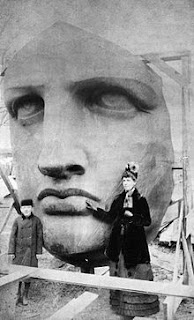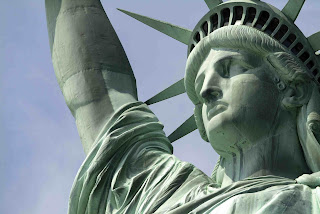A PROMISED VICTORY
(A RIDE ON EAGLE’S WINGS)
Revelation 19:15(KJV)
“And out of his mouth goeth a sharp sword, that with it he should smite the nations: and He shall rule them with a rod of iron: and He treadeth the winepress of the fierceness and wrath of Almighty God.”
A PROMISED VICTORY
(A RIDE ON EAGLE’S WINGS)
A PROMISED VICTORY
(A RIDE ON EAGLE’S WINGS)


A PROMISED VICTORY
(A RIDE ON EAGLE’S WINGS)
1.
A ride on eagle’s wings
So airy and taking flight
There’s no.other ride
with this sort of plight
This ride is a Promised Victory,
Surely One that has made History.
Believing in the truth
transcending my highest
expectation
Weary soldier a Miracle
was told ya
the hand of G-d
rending the atmosphere
just to rescue His
child from all of the fear
from what looked to me
to be an uncertain destiny
an uncertain wait
touched by the hand of G-d
A reflection not a fraud
aglow in the pain is hard to know
what will be the gain
and faith is the key
that shelter’s me
faith in Him,
in Jesus Christ
A Promised Destiny
this ride on eagle’s wings.
By:mel-Sarah Christ
kimberly marie(mary II)LaPointe-Hanson
Christ
*Revelation 12 lotr etc.Sealed in Eternally.
My talons arise
Revelation 19:15(KJV)
“And out of his mouth goeth a sharp sword, that with it he should smite the nations: and He shall rule them with a rod of iron: and He treadeth the winepress of the fierceness and wrath of Almighty God.”
Earthquakes  Summit
Summit
Informations about Summit
| Country | United States of America |
| Region | California (CA/029) |
| Coordinates | Latitude : 35.12774 Longitude : -118.41397 |
| Altitude | 1231 |
| Time zone | America/Los Angeles (GMT -8h) |
| Earthquakes | 237Alternative names for Summit
|
*GOD HAS FALLEN NOT JESUS CHRIST.
*GOD IS BEING VIOLENT WITH WHO IAM.
*NOT JESUS CHRIST.
*GOD CHEATS.
*NOT JESUS CHRIST.
*GOD IS PERVERTED.
*NOT JESUS CHRIST.
*GOD BREAKS HIS WORD.
*NOT JESUS CHRIST.
*GOOGLE,NICOLE&SERGEY BRIN ...."CAN STOP ACTING LIKE GOD IS DOING THIS BECAUSE OF WHO THEY ARE.
*HE HAS MADE IT CLEAR THAT HE IS NOT &THAT,
*I CANNOT EVER;
*BE ANYONE BUT WHO IAM ETERNALLY SEALED IN.
*U LOOK GODDAMNED LOO-TARDED ACTING LIKE ANYTHING,
*IS FOR OR ABOUT WHO U ARE.
*"ONLY I AM EVER IRIS."
*THESE ARE FINAL ANSWERS.
&SEALED IN ETERNALLY THESE REALLY ARE.
*NICOLE BRIN WAS NOT EVER ANYONE THAT,
*IS ANY KIND OF IRIS.
*THESE ARE FINAL ANSWERS.
&SEALED IN ETERNALLY THESE REALLY ARE.
Earthquakes Ciburial..."*NO.TO ANY:CHRIST IRIS BURIAL IRIS NOAH DOOR NOAH EVE II SION:SAVIOUR IRIS OMEGA NOAH ALPHA:*GOD TOLD U THAT I AM NOT DEAD, *AND THAT I WILL NOT EVER BE DEAD AS WHO IAM ETERNALLY SEALED IN AS. *TIMES EVERY DIRECTION AND EVERY PLACE. *TIMES INFINITY.
Earthquakes  Summit
Summit
Informations about Summit
| Country | United States of America | |||||||||||||||||
| Region | California (CA/029) | |||||||||||||||||
| Coordinates | Latitude : 35.12774 Longitude : -118.41397 | |||||||||||||||||
| Altitude | 1231 | |||||||||||||||||
| Time zone | America/Los Angeles (GMT -8h) | |||||||||||||||||
| Earthquakes | 237Alternative names foRRr Summit
|
Recent Earthquakes:Orășeni-Deal, Botoşani, Romania
Orășeni-Deal has had: (M1.5 or greater)
- 0 earthquakes in the past 24 hours
- 0 earthquakes in the past 7 days
- 0 earthquakes in the past 30 days
- 1 earthquake in the past 365 days
Orășeni-Deal has had: (M1.5 or greater)
- 0 earthquakes in the past 24 hours
- 0 earthquakes in the past 7 days
- 0 earthquakes in the past 30 days
- 1 earthquake in the past 365 days
Orășeni-Deal has had: (M1.5 or greater)
- 0 earthquakes in the past 24 hours
- 0 earthquakes in the past 7 days
- 0 earthquakes in the past 30 days
- 1 earthquake in the past 365 days
*THERE IS NO.SUCH THING AS ANY:ORIENTAL ASIAN EVE NICOLE DEAL-B,
*OMEGA T(MOON:TAYLOR) OMEGA(2)(II) SAVIOUR NICOLE ROSE MA NICOLE ALPHA.
*FINAL ANSWER.
*&SEALED IN ETENRALLY IS THIS FINAL ANSWER.
*GOD NOT ONCE EVER USED A WHITE WOMAN,
* TO REPRESENT AN ASIAN,
*OR AFRICAN..." WOMAN.
*I AM REVELATION 12 LOTR ETC.ARWEN,
*(SOPHIE)SELENE,SARAH CONNOR,
*CATHY CHANDLER,ETC.
*MEANING EVERY WOMAN THAT IAM,
*IS ONLY BETRAYED AS I AM BY A WHITE WOMAN.
*FINAL ANSWER.
*AGAIN:U HAVE 'THEE FINAL"ANSWERS.
*"NOTHING MORE EVER NEEDS TO BE PRESENTED",
*TO CONFIRM WHO "THEE WOMAN" IS.
*WHO SHE IS WITH.
*NO.OTHER WOMAN CAN EVER BE BROUGHT FORTH,
*EVER AGAIN & HAVE IT BE:HEBREW SCRIPTURALLY,* *LEGAL.
*&U DO KNOW THIS ABSOLUTE FACT,
* OF HEBREW SCRIPTURAL MATTER:TRUTH.
*ALL IS SEALED IN ETERNALLY.
*THIS CANNOT BE TURNED-BACK.
*ALTERED,TRANSFERRED,DONE-AWAY,
*WITH,ADDED TO OR TAKEN AWAY FROM,
*FOR WICKEDNESS ETC...."
*
*Io recognized by her father (Victor Honoré Janssens)
Io - Greek Mythology
Io was the princess of Argos, who Zeus fell in love with. To try to keep Hera from noticing, he covered the world with a thick blanket of clouds. However, as soon as Hera saw that, she immediately became suspicious. She came down from Mount Olympus and began dispersing the clouds. Zeus did some quick thinking and changed Io's form from a lovely maiden; so, as the …
Earthquakes  Iris
Iris
Informations about Iris
| Country | United States of America |
| Region | California (CA/025) |
| Coordinates | Latitude : 33.19531 Longitude : -115.40443 |
| Altitude | 25 |
| Time zone | America/Los Angeles (GMT -8h) |
| Earthquakes | 107 |
Additional links about Iris
 Wikipedia
WikipediaEarthquakes  Niland
Niland
Informations about Niland
| Country | United States of America |
| Region | California (CA/025) |
| Coordinates | Latitude : 33.24004 Longitude : -115.51888 |
| Altitude | -43 |
| Population | 1 006 inhabitants |
| Time zone | America/Los Angeles (GMT -8h) |
| Earthquakes | 976 |
Additional links about Niland
*'WE ARE IN REVELATION 12 LOTR ETC."(SEALED),
*GOD HAS ALREADY,
* CONFIRMED THIS ABSOLUTE FACT OF MATTER.
Religious
Liberty
and Expression
Under Attack:
Restoring
America’s
First Freedoms
Abstract: Religious freedom is one of the core principles upon which the American system of government is based. And yet religious freedom in America is under assault: Politicians mock the faithful’s claims of religious conscience, while government entities and actors treat religious freedom and expression as obstacles to be overcome rather than as important values to protect. Individuals of all faiths or none, and from all points on the political and ideological spectrum, should be alarmed at the mounting assault on the free exercise of religion and freedom of religious expression. The erosion of one constitutional right—especially one as fundamental as religious liberty and the freedom of speech—may serve as a precedent for the erosion of other rights to the detriment of all Americans.
All across America, religious institutions and individuals are being subjected to increasing restrictions on their free exercise of religion and freedom of speech—a crackdown that can be seen in a variety of different contexts ranging from employers or health care professionals being required to provide or facilitate abortions against the dictates of their faith to street evangelists and public school students seeking to share their religious viewpoints with others. This rising disregard for religious liberty represents a marked break from the long-standing American tradition of accommodating religious practice and expression that predates the ratification of the Constitution.
The freedom to live and speak in accordance with one’s religious tenets is one of the core principles upon which the American system of government is based, with a historical foundation that predates the Declaration of Independence and the U.S. Constitution. For example, one year before the Declaration of Independence was signed, the Continental Congress passed a resolution exempting individuals with pacifist religious convictions from military conscription:
Get exclusive insider information from Heritage experts delivered straight to your inbox each week. Subscribe to The Agenda >>
As there are some people, who, from religious principles, cannot bear arms in any case, this Congress intend no violence to their consciences, but earnestly recommend it to them, to contribute liberally in this time of universal calamity, to the relief of their distressed brethren in the several colonies, and to do all other services to their oppressed Country, which they can consistently with their religious principles.
The deep reverence that America’s earliest leaders held for religious freedom stands in stark contrast to the disdain for claims of religious conscience seemingly held by some current government leaders. For example, House Minority Leader Nancy Pelosi (D–CA) famously stated that health care providers who refuse on moral grounds to perform abortions “have this conscience thing.”[2]
As detailed below, the experience of law firms like the American Center for Law and Justice (ACLJ) and other religious organizations and individuals provides dramatic proof that religious liberty is under assault and that an unwavering determination to protect religious liberty and religious speech is needed now more than ever.
Religious Liberty as a Foundational Principle
Prior to the enactment of the U.S. Constitution, conflicts between religious exercise and government-imposed requirements “primarily centered around three issues: oath requirements, military conscription, and religious assessments.”[3] Professor Michael McConnell writes that “[t]he resolution of these conflicts suggests that exemptions were seen as a natural and legitimate response to the tension between law and religious convictions.”[4] Further, when the Bill of Rights was ratified,
[I]t was accepted that government should, when possible, accommodate religious practice…. Americans in the Colonies and early States thought that, if an individual’s religious scruples prevented him from complying with a generally applicable law, the government should, if possible, excuse the person from the law’s coverage.[5]
The cherished position of religious freedom at the time the First Amendment was ratified must be taken into account when interpreting the First Amendment’s command that “Congress shall make no law respecting an establishment of religion, or prohibiting the free exercise thereof….”
The writings of America’s Founding Fathers made it clear that they viewed religious freedom as occupying the highest rung of civil liberty protections. For example, George Washington wrote that “the establishment of Civil and Religious Liberty was the Motive that induced me to the field of battle.”[6] His belief that the government should accommodate persons on the basis of conscience was quite evident when he argued that “[t]he conscientious scruples of all men should be treated with great delicacy and tenderness: and it is my wish and desire, that the laws may always be extensively accommodated to them, as a due regard for the protection and essential interests of the nation may justify and permit.”[7]
In a 1789 letter to the United Baptists in Virginia, Washington also promised that he would fight any efforts by the government to threaten religious liberties:
If I could have entertained the slightest apprehension that the Constitution framed in the Convention, where I had the honor to preside, might possibly endanger the religious rights of any ecclesiastical Society, certainly I would never have placed my signature to it; and if I could now conceive that the general Government might ever be so administered as to render the liberty of conscience insecure, I beg you will be persuaded that no one would be more zealous than myself to establish effectual barriers against the horrors of spiritual tyranny, and every species of religious persecution.
Further, in 1785, in his Memorial and Remonstrance Against Religious Assessments, James Madison wrote:
The Religion then of every man must be left to the conviction and conscience of every man; and it is the right of every man to exercise it as these may dictate. This right is in its nature an unalienable right…. It is the duty of every man to render to the Creator such homage and such only as he believes to be acceptable to him. This duty is precedent, both in order of time and in degree of obligation, to the claims of Civil Society…. [T]he equal right of every citizen to the free exercise of his Religion according to the dictates of conscience is held by the same tenure with all our other rights. If we recur to its origin, it is equally the gift of nature; if we weigh its importance, it cannot be less dear to us….
Like Washington and Madison, Thomas Jefferson also wrote extensively about the Constitution’s protection of the freedom of conscience:
No provision in our Constitution ought to be dearer to man than that which protects the rights of conscience against the enterprises of the civil authority. It has not left the religion of its citizens under the power of its public functionaries, were it possible that any of these should consider a conquest over the consciences of men either attainable or applicable to any desirable purpose…. I trust that the whole course of my life has proved me a sincere friend to religious as well as civil liberty.[10]
On another occasion, Jefferson stated that the government has authority “over such natural rights only as we have submitted to them. The rights of conscience we never submitted, we could not submit.”[11]
Soon after the Louisiana Territory was acquired by the United States in 1803, the French Ursuline Sisters of New Orleans wrote to President Jefferson seeking assurances that “[t]he spirit of justice which characterizes the United States of America” would allow them to continue their spiritual and corporal works of mercy.[12] Jefferson replied that “[t]he principles of the Constitution and government of the United States are a sure guarantee [that your religious institution] will be preserved to you sacred and inviolate, and that your institution will be permitted to govern itself according to [its] own voluntary rules, without interference from the civil authority.”[13] Jefferson concluded his letter by assuring the Sisters that their religious institution would receive “all the protection which my office can give it.”[14]
Moreover, the Supreme Court has noted on numerous occasions that “[g]overnment policies of accommodation, acknowledgment, and support for religion are an accepted part of our political and cultural heritage.”[15] The Court has stated that “[w]hen the state…cooperates with religious authorities by adjusting the schedule of public events to sectarian needs, it follows the best of our traditions…. To hold that it may not would be to find in the Constitution a requirement that the government show a callous indifference to religious groups.”[16]
In sum, the historical foundation for a strong commitment to protecting religious liberty cannot be debated. As the following examples illustrate, however, current government entities and actors often treat religious freedom and expression as obstacles to be overcome rather than as important values to protect.
Religious Objections to Participation in Abortion
The Supreme Court once observed: “Men and women of good conscience can disagree, and we suppose some always shall disagree, about the profound moral and spiritual implications of terminating a pregnancy, even in its earliest stage.”[17] Many of the current struggles for the protection of religious liberty stem from government attempts to force individuals who sincerely and vehemently oppose performing or facilitating abortions (including through abortion-inducing drugs) to do so. This issue is distinct from the question of the extent to which the government itself may limit, protect, or facilitate access to abortions.
One of the greatest assaults on religious liberty and faith-based institutions in the history of the United States, the U.S. Department of Health and Human Services (HHS) mandate requires non-exempt employers to cover sterilization, prescription contraceptives, abortion-inducing drugs, and related patient education and counseling services in their health insurance plans. A narrow exemption covers houses of worship, but countless religious employers, such as religious schools and universities, hospitals, and charities, are forced either to comply with the HHS mandate in violation of their faith or to pay significant financial penalties.
The HHS mandate violates the Religious Freedom Restoration Act (RFRA), a federal law that prohibits the federal government from imposing a substantial burden upon a person’s exercise of religion—unless the government can demonstrate that imposing that burden is the least restrictive means of furthering a compelling governmental interest.[18] The RFRA was enacted in response to the Supreme Court’s decision in Employment Division v. Smith,[19] in which the Court held that laws that substantially burden the exercise of religion do not violate the Free Exercise Clause of the First Amendment so long as they are neutral laws of general applicability.
As the Supreme Court has explained in cases such as Sherbert v. Verner,[20] one’s religious exercise is substantially burdened when a law prohibits an act required by one’s faith, requires an act forbidden by one’s faith, or forces a person to choose either to violate his or her faith or to incur imprisonment or financial loss. The HHS mandate violates the RFRA because it substantially burdens the religious exercise of numerous entities and individuals, and the government cannot prove that requiring these entities and individuals to provide objectionable services is the least restrictive way to achieve any compelling government interest.
In defense of their religious freedom, numerous religious employers that are subject to the HHS mandate have filed lawsuits around the country. For example, the ACLJ represents a private business and its owner in a lawsuit filed in Missouri and has also filed a dozen amicus curiae briefs on behalf of 79 Members of Congress in support of other HHS mandate challenges. Despite what some have argued, these cases are not about denying anyone access to contraceptives; the government itself could provide or pay for the services at issue. Rather, the challenges focus on the Administration’s conscription of objecting religious employers into violating the core tenets of their faith.
In a similar vein, there are continued battles over whether pharmacists should be forced to violate their religious and moral beliefs by dispensing contraceptives that can induce abortions. Over the past several years, the ACLJ has represented pharmacists and pharmacy owners in Illinois, and in one such case last year, the judge struck down an Illinois provision that requires pharmacists to dispense abortion-inducing drugs. In that case, there was no evidence that a single person in Illinois was unable to obtain emergency contraception due to a pharmacist’s religious objection.[21] In addition, earlier this year, a federal judge in Washington enjoined enforcement of state pharmacy rules designed to force religious objectors to dispense abortion-inducing drugs.[22]
Although the First Amendment typically does not apply to private entities such as a private hospital or a company that operates pharmacies, federal and state statutes provide some protections for religious freedom in this context. In particular, Title VII of the Civil Rights Act of 1964 imposes an affirmative duty on many private employers to reasonably accommodate the religious practices and beliefs of their employees unless doing so would impose an undue hardship on the employer. Thus, when employees ask to be excused from a job requirement that conflicts with their religious faith—such as providing objectionable contraceptives or abortion services—in many instances, the employer is legally required to grant this request.
Numerous cases brought by health care professionals seeking to protect their rights under Title VII and similar state laws are being litigated across the country.
Religious Expression in the Public Arena
Religious individuals and entities continue to face restrictions on their ability to share their religious message with others. For example, the ACLJ recently assisted in getting criminal charges dropped against evangelists seeking to share their faith on a public sidewalk in Missouri.[23] And earlier this year, the U.S. Court of Appeals for the Sixth Circuit held that Tennessee Technological University violated a preacher’s First Amendment rights by requiring him to provide notice of his intent to speak at the open areas of campus, as well as details concerning his intended topics of discussion, 14 business days in advance.[24] This type of litigation continues despite the fact that evangelism on public property through the spoken and written word enjoys the full protection of the First Amendment.
In the latest phase of litigation that began in 1995, the Bronx Household of Faith obtained an injunction allowing the church to continue holding Sunday worship services in a New York City school building.[25] Similarly, author Ilene Vick needed a court order to gain equal access to public library rooms in Putnam County, Tennessee, to discuss her book, Personality Based Evangelism, because of an unconstitutional policy that banned the use of library rooms for religious purposes.[26]
The fact that equal access litigation continues to be necessary is outrageous; almost 20 years ago, the Supreme Court held that denying religious organizations the same access to public facilities as secular organizations is unconstitutional.[27] Perhaps there is a continued (albeit incorrect) belief that the Establishment Clause requires or allows discrimination against religious organizations with respect to the use of public facilities.
As the Supreme Court has explained, however, “the Constitution…affirmatively mandates accommodation, not merely tolerance, of all religions, and forbids hostility toward any.”[28] In addition, the Court has acknowledged that there is no “constitutional requirement which makes it necessary for government to be hostile to religion and to throw its weight against efforts to widen the effective scope of religious influence.”[29] The Establishment Clause provides no legal justification for the government to violate the freedom of speech or religious liberty of private individuals and organizations.
In the past few years, several city governments across the country have targeted pro-life crisis pregnancy centers through laws that violate these organizations’ freedom of speech. These centers are often affiliated with, or run by, religious organizations or individuals that seek to provide information and assistance to pregnant women who are considering having an abortion.
The ACLJ is currently representing two organizations that operate several crisis pregnancy centers in New York City in a lawsuit challenging a city law that imposes burdensome disclosure and confidentiality requirements and compels disclaimers by crisis pregnancy centers. Last year, the organizations obtained a preliminary injunction holding that the law violates their freedom of speech, and the judge observed that “[w]here…the government seeks to affirmatively require government-preferred speech, its efforts raise serious First Amendment concerns.”[30] This case and similar cases are pending before federal courts.
Religious Exercise and Expression at Public Universities
At public universities across the country, students and teachers continue to have their freedoms of religion and speech limited. The Supreme Court has declared:
[T]he First Amendment…does not tolerate laws that cast a pall of orthodoxy over the classroom. The vigilant protection of constitutional freedoms is nowhere more vital than in the community of American schools. The classroom is peculiarly the “marketplace of ideas.” The Nation’s future depends upon leaders trained through wide exposure to that robust exchange of ideas which discovers truth “out of a multitude of tongues, [rather] than through any kind of authoritative selection.”[31]
And yet, despite the Court’s clear holding, public universities still try to suppress religious freedoms. For instance, the ACLJ recently represented an astronomy professor in a lawsuit against the University of Kentucky for not hiring him because some of the search committee members were concerned that he was an evangelical Christian. The case was ultimately settled after the university agreed to pay him $125,000.[32]
More recently, the ACLJ opposed a decision by several public universities in New York to remove traditional religious holidays from their academic calendars in the name of efficiency.[33] In another example, Wichita State University’s policy concerning the collection and distribution of mandatory student fees prohibited funding for “non-scholarly religious activities,” although non-scholarly secular activities were funded. The ACLJ wrote a letter to the university on behalf of a student explaining that the policy violated the First Amendment, and the university repealed the discriminatory funding restriction.[34]
In addition, in light of the Supreme Court’s 2010 decision in Christian Legal Society v. Martinez,[35] law firms like the ACLJ continue to advise religious student organizations that are faced with intrusive mandates requiring them to accept members or leaders who do not adhere to the organization’s core beliefs as a condition for university recognition or funding.
Religious Exercise and Expression at Other Public Schools
Numerous students continue to have their religious freedom and speech limited at public elementary, middle, and high schools. The following examples of cases that the ACLJ has been involved with illustrate this problem:
- A New York middle school indefinitely suspended a student for wearing rosary beads for religious reasons in violation of a dress code. The student sued, and after the court issued an injunction, the case was settled, with the school clearing the student’s record and paying nearly $25,000 in damages, fees, and costs.[36]
- A public school in Hawaii invited parents to include messages to their children in the yearbook but refused to include one parent’s encouraging Bible quote. The principal ultimately agreed to include the Bible quote in the yearbook.[37]
- The principal of a public school in Indiana withheld permission for a student to pass out religious flyers to other students that contained an e-mail address and website where students could submit prayer requests, although other students had been allowed to pass out flyers with secular content. The superintendent ultimately granted approval for the student to pass out the religious flyers.[38]
- A student at a public middle school in New York delivered notes with encouraging Bible verses to a few other students, but the principal told her that, due to complaints from parents, she could not pass out personalized religious notes in the future. After the ACLJ intervened, the student’s mother received a letter from the superintendent informing her that her daughter’s First Amendment rights would be respected in the future.[39]
- A student was told that he could not use the Bible as a historical reference for a writing project on Roman history, although he was eventually permitted to do so.[40]
- A student at a public elementary school wrote a short poem in her journal that included the line, “Love is the earth that God made.” Her teacher crossed out that line and said that discussion of God was not allowed in class. After the student’s father shared a letter from the ACLJ with the teacher, she explained that she had believed that any discussion of religion in a public school classroom was prohibited.[41]
- A high school student wanted to drop a music class that required him to sing songs that conflicted with his faith. The principal told the student that he would not allow him to drop the class because he wanted the student to learn “tolerance.” The principal ultimately allowed him to drop the class.[42]
- The principal of a public school in New York City caused an uproar by refusing to allow kindergarten students to perform “God Bless the USA” at their graduation ceremony.[43] The students had been rehearsing the song for several months, but the principal pulled the song shortly before the event due to a concern about “offending other cultures.”
With respect to these kinds of cases, the Supreme Court has consistently held that public school students and teachers do not “shed their constitutional rights to freedom of speech or expression at the schoolhouse gate.”[44] Although the specific legal tests that are applied vary depending on whether a student’s expression is curriculum-related,[45] there is no legal basis—such as a fear of violating the Establishment Clause—for censoring a student’s expression solely because it is religious.
Indeed, as the Supreme Court has noted, “secondary school students are mature enough and are likely to understand that a school does not endorse or support student speech that it merely permits on a nondiscriminatory basis. The proposition that schools do not endorse everything they fail to censor is not complicated.”[46]
Other Recent Examples
In addition to the above-noted cases, a few recent incidents provide clear evidence that the assault against American’s religious freedom continues—on all fronts. For instance, a state licensing officer in Washington told a Christian day care center that it must remove posters depicting the “Tree of Good and Evil” from a classroom wall, and a Bible verse from a chapel wall, because the content was “too negative” and might frighten children. After the ACLJ wrote a letter to the Washington state government explaining that the licensor’s decision violated the day care center’s First Amendment rights, the Washington State Attorney General’s Office overturned the decision.[47]
The continued marginalization of religious entities and expression is not limited to government actors. For example, a study of the policies and practices of social media platform and service providers—such as the iTunes App Store, Facebook, Google, and Twitter—that was conducted last year by the National Religious Broadcasters concluded that “Christian ideas and other religious content face a clear and present danger of censorship on web-based communication platforms.”[48] In addition, NBC created a firestorm last year when it aired a clip of children reciting the Pledge of Allegiance with the words “under God” edited out of the Pledge.[49]
Although this collection of recent examples does not implicate the First Amendment because private actors were involved, they are just the tip of the iceberg in terms of a trend of limiting religious liberty and expression.
An Alarming Trend
Although religious and moral objections to government mandates and restrictions are nothing new, the current nonchalant and sometimes hostile attitude toward religious freedom that is held by many government leaders—and some segments of the general public—runs counter to the long-standing American tradition of respecting the freedom of conscience and freedom of speech. A steadfast commitment to one’s religious scruples was once lauded as a virtue, but in the current public discourse, religious objectors are often chastised as seeking special treatment that would impose their values on others.[50]
The apparent unpopularity of the expression of religious values through actions or words brings to mind Justice Oliver Wendell Holmes’s observation that “we should be eternally vigilant against attempts to check the expression of opinions that we loathe and believe to be fraught with death”[51] and the Supreme Court’s more recent reminder that “[t]he First Amendment protects expression, be it of the popular variety or not.”[52]
Individuals of all faiths or none, and from all points on the political and ideological spectrum, should be alarmed at the mounting assault on the free exercise of religion and freedom of religious expression. The erosion of one constitutional right—especially one as fundamental as religious liberty and the freedom of speech—may serve as a precedent for the erosion of other rights to the detriment of all Americans.
—Jay Alan Sekulow is Chief Counsel of the American Center for Law and Justice.
Get Inside Information on the Policies Shaping America
Each week, The Heritage Foundation publishes a limited-release newsletter with all of the latest news and updates on the critical policy issues being discussed on the Hill. Stay in the know when you sign up today.





























No comments:
Post a Comment
Note: Only a member of this blog may post a comment.